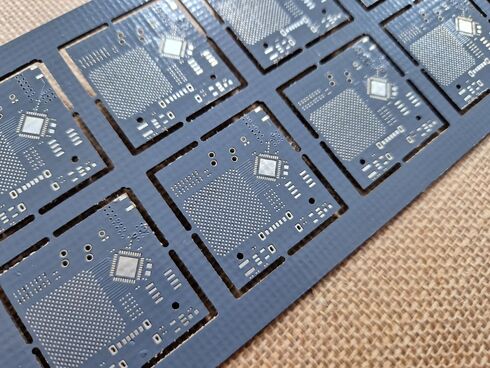
Recyclable circuit boards
2 February 2024

As printed circuit boards (PCBs) are used in nearly all electronic products, there are concerns about how they can be recycled or disposed of responsibly.
The University of Portsmouth has partnered with a sustainable materials specialist to develop and commercialise what is described as the world's first biodegradable, printed PCBs.
The move comes after the university received a KnowledgeTransfer Partnership (KTP) by Innovate UK and it will work in tandem with Jiva Materials to offer a sustainable solution.
Electronics represent a growing waste problem globally. On average, each person in the world generates 7.5Kg of electronic waste every year. PCBs are believed to account for 8% of all e-waste, with the UK contributing more than 2 million tonnes waste annually.
The majority of electronic circuit boards are manufactured on a glass fibre epoxy laminate, usually with a persistent organic pollutant as the flame retardant. At the end of their useful life, less than 50% of such waste is collected and recycled correctly.
If the gold, silver and platinum metal content is deemed to be too low, they are shredded and sent to landfill, or burnt.
Jiva has developed a laminate alternative called Soluboard, which is claimed to offer a much-reduced CO2 burden and a way of reducing the £8 billion worth of critical minerals sent to landfill every year.
The company will work with Professor Hom Dhakal and his team at the School of Mechanical and Design Engineering in Portsmouth University’s Faculty of Technology, who will test and characterise the properties of natural fibres, such as jute, flax and hemp, for their use as potential laminate materials.
Jiva says that Soluboard is available as a copper clad laminate whose organic structure can be dissolved using hot water within a controlled environment. This enables the recovery of the natural fibre, copper and electronic components containing rare and expensive minerals, which can be reused in many cases.
The KTP award will speed the development process for new versions of the board that can be used in advanced electronics.

